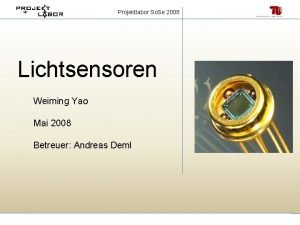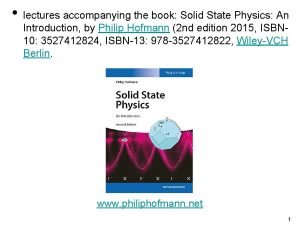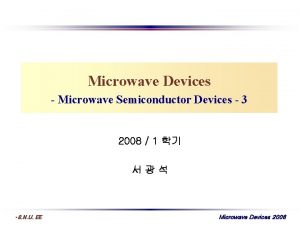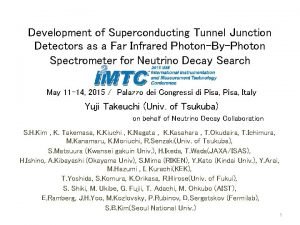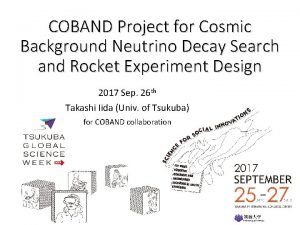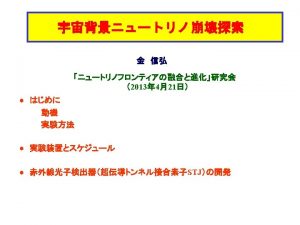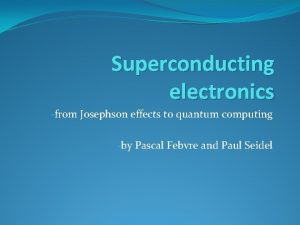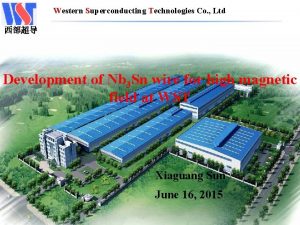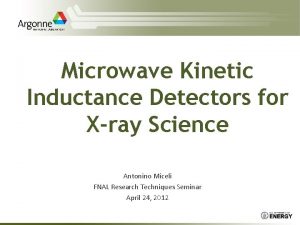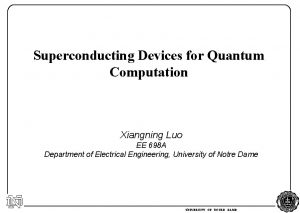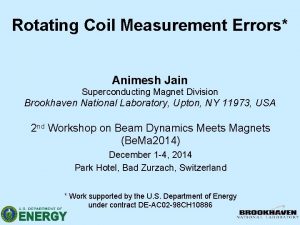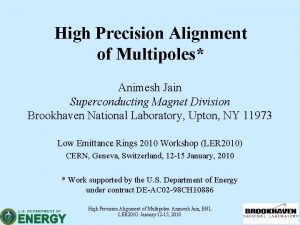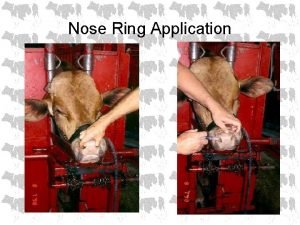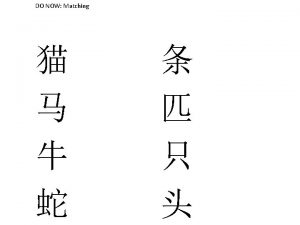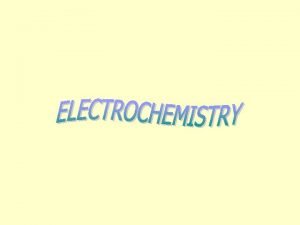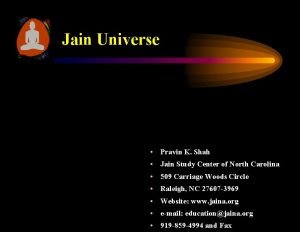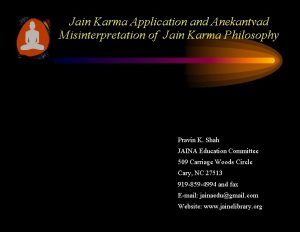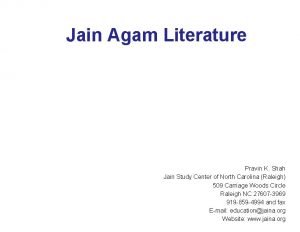Superconducting UltimateStorage Ring Design Weiming Guo Animesh Jain










- Slides: 10

Superconducting Ultimate-Storage. Ring Design Weiming Guo, Animesh Jain NSLS-II FLS workshop, March 5, 2012, J-Lab 0 BROOKHAVEN SCIENCE

Outline • Introduction to the existing designs: prospects and difficulties • Lattice-structure study: reasons for superconducting • A design with superconducting magnets • Approaches to chromaticity correction 1 BROOKHAVEN SCIENCE

The Basic Idea ε~θ 3~(1/N)3 Increase the number of cells; Or, split the dipole and add focusing Elements. Experimental Hall To go from 2 nm to 8 pm: 6 slices ESRF Multi-bend lattice with 0. 3 nm emitt *A. Ropert, EPAC’ 2000 2 >10 girders install BROOKHAVEN SCIENCE

Existing Designs US 7 -Michael Borland Type I: qudrupole triplet + a dipole SLAC, PEP-x design Type II: a focusing quadrupole + a defocusing dipole 3 BROOKHAVEN SCIENCE

Why Superconducting US 7: Cx=-1. 25, ~6 m per dipole Normal magnets QC: QUAD, L=0. 4, K 1=2. 1 DC: DRIF, L=2. 080831419590222 BH: CSBEND, L=0. 2, ANGLE=0. 00965, K 1 Beamline: (BH, DC, QC, DC, BH) Superconducting magnets QC: QUAD, L=0. 4, K 1=12. 55 DC: DRIF, L=0. 1 BH: CSBEND, L=0. 2, ANGLE=0. 00965, K 1 Beamline: (BH, DC, QC, DC, BH) 4 BROOKHAVEN SCIENCE

Limitations of Superconducting Magnets • Strength: 6 T, 30 mm bore radius QUAD: 180 T/m, Sextupole: 1500 -3000 T/m 2 • Magnet length: the longer the better, ~0. 5 m • Magnetic field: coil dominated, combined function magnets are possible • Magnet to magnet separation: 0. 1 m • Precision alignment: difficult • Cryogenic module: 5 -8 m, 0. 5 m separation 5 BROOKHAVEN SCIENCE

A Compact Design On-momentum dynamic apertur Sextupole scheme: Circumference: 828 m Emittance: 6. 4 pm Number of straights: 60 straight length: 6 m Combined quadrupole and sextupole -4 K 2=-6551. 7 BC: Chromaticity: 336/ 222 Momentum spread: 7 x 10 QC: K 2=3638. 9 All quadrupole, no dipoles; emittance reduction: >63 6 BROOKHAVEN SCIENCE

Alternative Sextupole Scheme The long straight One-third of the ring, and the parameters Requirements to the long straight: Negative effects large βx , βy , ηx ; Emittance is mostly produced in the long βx , βy variation; straights; nonlinear terms become large >2π phase advance for nonlinear correction to large beta functions. 7 BROOKHAVEN SCIENCE

Other Long-Straight Schemes Mini-DBA 2π-transformer Dispersion flips sign sextupole flip sign Very difficult to obtain nonlinearity adds up large dispersion due to small H 8 BROOKHAVEN SCIENCE

Summary • Advantages of using superconducting magnets for the ultimate-storage-ring design: less chromatic, more compact • Showed a preliminary design • Using long straights to correct chromaticity looks promising. 9 BROOKHAVEN SCIENCE
